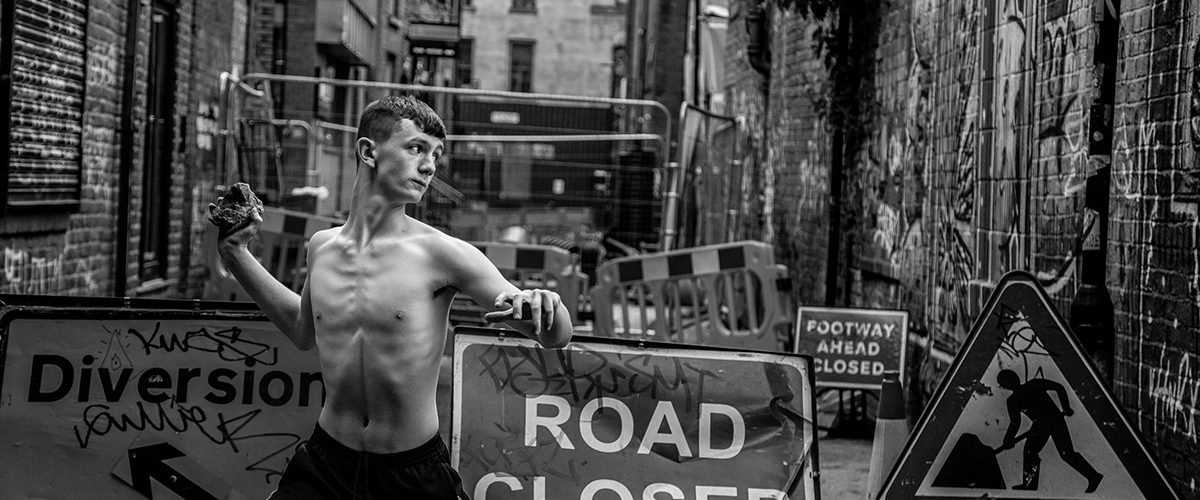Esteemed Canadian physician, Gabor Mate has studied the causes of addiction for decades, and written numerous books on the subject. His conclusions can possibly be distilled into one simple statement: in most cases, the root of addiction is nearly always childhood trauma. He argues no more research is required to prove the theory. The general medical profession don’t know how to respond to this theoretical hand grenade; to accept would mean removing a variety of absurdly convoluted mental health conditions from decades old journals (‘Generalized Anxiety Disorder’; ‘Anticipatory Anxiety’; ‘Panic Disorder’ etc.) It’s easier to pretend Mate is a maverick outsider, and carry on as if nothing has changed.
Playwright, Ed Edwards is a recovering drug addict, who has been through jail and rehab. I have no idea if he’s heard of Gabor Mate but his play is sufficiently up to date to make some small reference to the links between trauma and addiction (at least in the case of female drug addicts, who may have been abused in childhood). Edwards is a fresh and exciting voice, and it feels like he has a lot more to say on the subject. But at 70 minutes long, The Political History of Smack and Crack – presented by Most Wanted Theatre – doesn’t have space to explore the trauma-addiction link in any great detail; on this occasion, Edwards is more concerned with the socio-political factors which help create a culture of supply and demand.
Politics is the backdrop because at heart, this is a love story between two broken people who care about each other first, and are addicts second. Neil (William Fox) and Mandy (Eve Steele) drift in and out of each other’s lives over a period of years. Both are shoplifters, of different sorts. Mandy likes the smell of face creams, nicked from Boots, because it makes her feel safe. She likes smack as well: ‘This is what I need … it’s like the missing piece of me!’ Neil likes smack to but when there’s none available, he is happy to drive over to Northwich (!) and steal opiates from a Cheshire chemist (with Mandy his willing accomplice).
Eventually, Mandy decides to get clean and starts attending Narcotics Anonymous meetings. Neil isn’t ready to embrace a lifestyle of order and sobriety although an overdose (and near death experience) slowly changes his mind. The circular narrative is well constructed, with the two characters constantly switching status; rarely are Neil and Mandy clean and sober at the same time, which is what gives the play its emotional weight. Edwards adds the sort of quirky details (sharing ice fingers on a trip to Sale Water Park) which are clearly taken from lived, bitter-sweet experience.
Director Cressida Brown adopts a simple, no-frills approach, focusing on text, and character. This works well except during the numerous historical interludes which punctuate the narrative. There’s a lot of information to absorb: at the time of the UK inner city riots, for example, there were around 2000 addicts in the UK (all upper class). Four years later, thanks to a variety of factors, the number of British addicts had spiked to 330,000. Some stills or projections would make these historical sections easier to follow, and illuminate the complexities – particularly the idea that heroin can be a covert tool of government control.
The riots are the distribution tipping point. Summer 1981 was a scary place (recorded as the worst civil unrest since 1919); Home Secretary, Willie Whitelaw visited Manchester and Liverpool to survey the damage while Margaret Thatcher considered arming the Police. It was Anarchy in the UK, and it’s something Smack and Crack struggles to effectively convey.
Another small caveat is the lack of a theatre programme. For one thing, it would be interesting to read Edwards notes on the genesis of his work. More importantly, I had no idea who the actors were until much later (and there’s no cast list on the HOME website); it took half a dozen Google hits before I found the names of Steele and Fox. Both are excellent by the way, with Steele particularly empathic; it would be interesting to see them explore the characters of Neil and Mandy (and the origins of their addiction), in a sequel.
For now, The Political History of Smack and Crack is well worth 70 minutes of your time.
★ ★ ★ ★Most Wanted Theatre‘s The Political History of Smack and Crack was at Home, Manchester from 27-28 January as part of PUSH Festival 2020.





